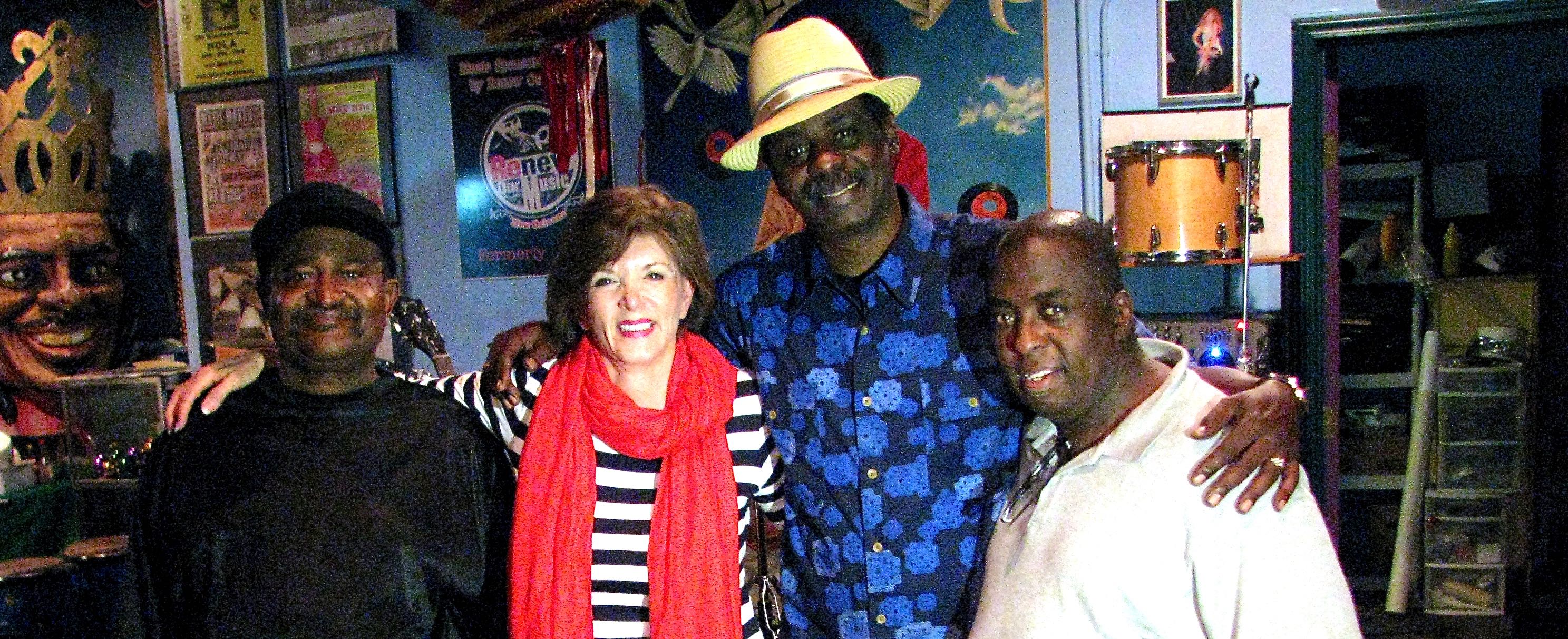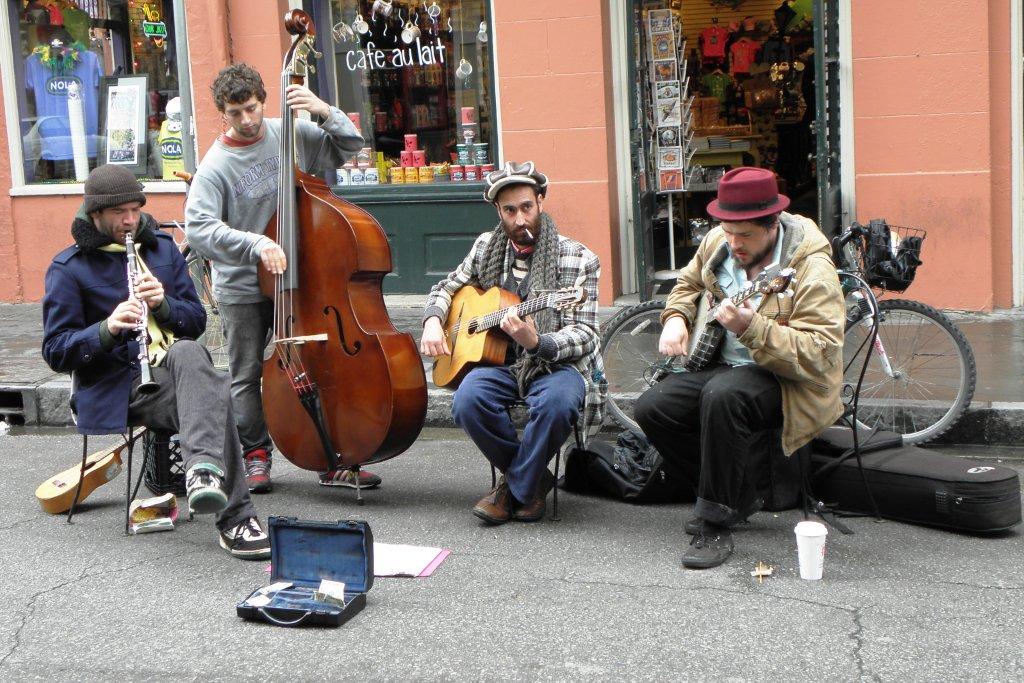
No one fully grasped the damage to lives and property when Category 3 Hurricane Katrina slammed into New Orleans on August 29, 2005.
Music is New Orleans’ legacy, its cultural gift to the world. The aftermath of Katrina scattered NO’s network of musicians. As John T. Lewis, R&B guitarist and vocalist, told me in our 2012 interview, “After Katrina, half my band members were gone, never to return.” So, he concentrated on what he could control, making the music better. The ensuing ten years has brought change to New Orleans. “The influx of many new acts and younger business owners equals The Big Squeeze.” Older generation musicians like Carol Fran, Little Freddie King, Deacon John Moore, Tommy Singleton, and Alabama Slim, find music gigs competitive and the cost of living escalating.
John T. made this insightful comment on the current NO climate: “The cost of living has skyrocketed with unaffordable housing. It’s no good to common folks. In short, only parts of the city has returned. The mental tax is on the faces of the survivors watching their roots dismantled before their eyes.”
My conversations with John T. and other musicians taught me that the style and feel of New Orleans’ music, like the unique two rhythm beat, is passed down from generation to generation. What Katrina did was cut the cord.

Carol Fran and her signature blond wig, Photo courtesy of Still Singing the Blues, produced by Barry Yeoman and Richard Ziglar
Places like the Dew Drop Inn were music incubators. Carol Fran, who made her name with the song Emmitt Lee (a true story of a traveling salesman Ms. Fran met one night at the Bird Cage) talked about how the Dew Drop Inn was a gathering place where musicians would eat red beans and rice and jam until the early morning hours. “You couldn’t go down Lasalle Street because cars were parked three abreast.” Indeed this was “heaven for everybody.” Here is where she met Clarence Hollimon, her future husband. Together, they were a power house duet with Fran on the piano and Hollimon on guitar. Information and quotes from Still Singing the Blues, produced by Barry Yeoman and Richard Ziglar.
Harvey Knox, guitar, began his career in the rural juke joints that materialized out of the cane fields of West Baton Rouge Parish. Music grew out of the rural areas of Louisiana. When the musicians went to bars to perform, the children went along. Music education followed the path of osmosis. The young absorbing the music from the old. The clubs no longer cater to the Blues. A musician can’t make a living. Information on Mr. Knox excerpted from Still Singing the Blues, produced by Barry Yeoman and Richard Ziglar.
Not just the Blues is on the decline. “New Orleans R&B has been in decline because not enough club owners have a passion for the good stuff,” says John T. Lewis, “from a business standpoint they’re making money without us…a new breed of business people.” Lewis gives the example of the Mother-in-Law Lounge, now owned by Kermit Ruffins, “…the memorabilia is gone. He (Ruffins) doesn’t like our scene so rarely is our music represented. Yes, the music scene has changed though I’m not sure tourist can tell.” Ten years after Katrina, the musicians are trying to hold-on to the past and be flexible enough to grab the future. (Information provided by John T. Lewis from August, 2015 interview)
Bethany Bultman, president of New Orleans Musicians’ Clinic, explains the difference in the music scene before and after Katrina: Musicians have always been able to live under the radar. That’s the way music percolates out of the water. Before Katrina there was a community that would sustain the musicians. There was an aunt or cousin’s house where they could stay for awhile. Habitat for Humanity is trying to rebuild the musicians’ community in the upper Ninth Ward which will make the music percolate again. (Information from Still Singing the Blues, produced by Barry Yeoman and Richard Ziglar)
For a comprehensive documentary about New Orleans and Southern Louisiana musicians check out Still Singing the Blues. Many of the artists songs mentioned in this article are no longer available. Some of their music can be found at Louisiana Music Factory.





